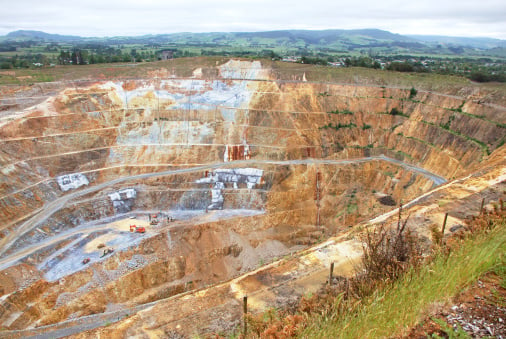Commodities & Metals
Mining and Trading Giant Glencore Abandons Dividend to Cut Debt
Published:
Last Updated:

The newly combined company almost immediately took an asset impairment charge of $7.7 billion related to the merger, and Glencore has been struggling to overcome lower commodity prices ever since. Stuck with some $30 billion in debt, the company said Monday that it will suspend its dividend, issue $2.5 billion in new stock and sell assets, including a stake in its agricultural business. In all, the company is looking to raise $10.2 billion in cash and plans to reduce its debt into the low $20-billion range by the end of 2016.
According to the company press release, 78% of the proposed equity issuance is underwritten by Citi and Morgan Stanley, and the remaining 22% has been committed by the company’s senior management.
Glencore outlined its savings plan:
ALSO READ: America’s Fastest Shrinking Jobs
The company also plans to suspend operations at its Katanga and Mopani copper mines in Africa for 18 months, which Glencore said would remove approximately 400,000 metric tons of copper cathode from the market. The expansion and upgrade projects at both mines will continue however.
Ivan Glasenberg and Steven Kamin, Glencore’s CEO and CFO, respectively, issued a joint statement:
Notwithstanding our strong liquidity, positive operational free cashflow generation, lack of debt covenants, modest near-term maturities and the recent affirmation of our credit ratings, recent stakeholder engagement in response to market speculation around the sustainability of our leverage, highlights the desire to strengthen and protect our balance sheet amid the current market uncertainty. …
Copper and zinc are both supply-challenged and an essential ingredient of future global growth. In seaborne thermal coal, a capex drought and low prices have helped rebalance the market. We are confident that thermal coal’s position and availability as the lowest cost fuel source for many large economies will underpin its key role in the global energy mix for many years to come. We have today an extensive portfolio of long-life, low-cost industrial assets, benefitting from the unique capabilities of our marketing business. We reiterate our 2015 full year marketing EBIT guidance of US$2.5 billion to US$2.6 billion and remain confident of our long-term guidance range of US$2.7 billion to US$3.7 billion.
Glencore’s shares spiked nearly 1% in London early Monday morning and later traded up about 6.8%. Shares are down 64% over the past 12 months.
ALSO READ: Top Selling Products From Each State
A financial advisor can help you understand the advantages and disadvantages of investment properties. Finding a qualified financial advisor doesn’t have to be hard. SmartAsset’s free tool matches you with up to three financial advisors who serve your area, and you can interview your advisor matches at no cost to decide which one is right for you. If you’re ready to find an advisor who can help you achieve your financial goals, get started now.
Investing in real estate can diversify your portfolio. But expanding your horizons may add additional costs. If you’re an investor looking to minimize expenses, consider checking out online brokerages. They often offer low investment fees, helping you maximize your profit.
Thank you for reading! Have some feedback for us?
Contact the 24/7 Wall St. editorial team.